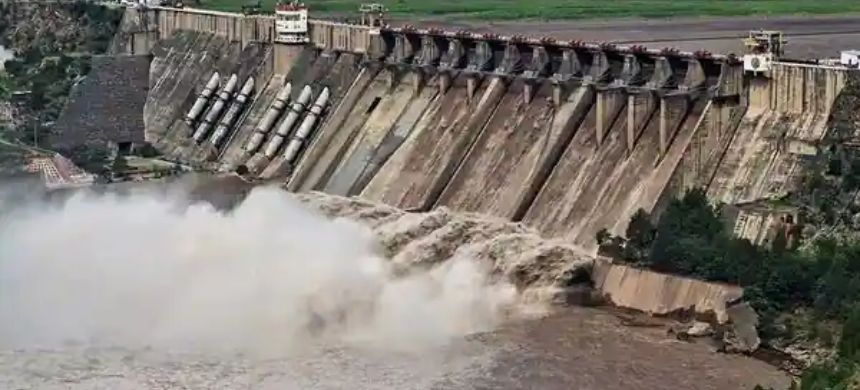In a move escalating regional tensions, India has restricted the flow of water from the Baglihar Dam on the Chenab River to Pakistan, signaling a step toward suspending its commitments under the Indus Waters Treaty.
According to international media reports, New Delhi also initiated plans to reduce water flow from the Kishanganga hydroelectric project on the Jhelum River. These actions follow India’s recent reservoir expansion efforts at key hydropower sites in the Kashmir region, hinting at a broader withdrawal from the long-standing 1960 water-sharing agreement.
Read more: Pakistan to Notify India Over Indus Treaty Halt
The National Hydroelectric Power Corporation (NHPC) confirmed that de-silting activities at the Baglihar Dam had begun, slashing water flow to Pakistan by as much as 90%. Similar operations are planned for the Kishanganga Dam in Indian-administered Kashmir. Over the weekend, Baglihar’s gates were closed to start the process.
Although the immediate impact on Pakistan’s water supply is limited, analysts caution that future Indian projects could cause severe disruptions if these measures persist. Pakistan, which relies heavily on the Indus basin for agriculture and energy, has condemned India’s actions, with some officials labeling the water blockage a potential “act of war.”
India reportedly failed to notify Pakistan about the ongoing work at the Baglihar and Salal dams—an apparent violation of the treaty’s protocols, especially since such operations have never been carried out at these locations before.
Pakistan has vowed to contest the treaty suspension, warning that any unilateral action will face legal and diplomatic pushback. As tensions rise, the international community is urging both sides to resume dialogue and resolve the dispute through peaceful negotiations.











